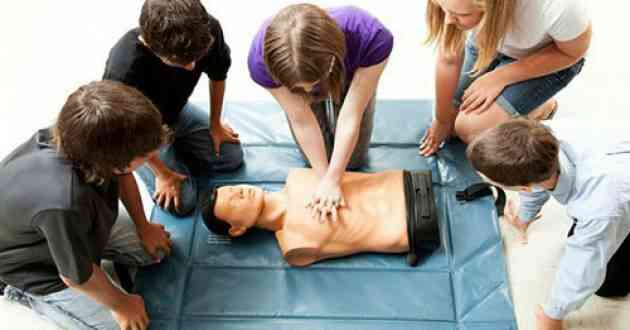Jobs That Require First Aid Training
If you're wondering what jobs require first aid training to do them effectively, the following can provide you insight
Whilst it’s true that first aid training is a valuable skill to have in any job or life situation, there are some jobs where holding a certain qualification is imperative to successfully holding a position in that career. Any job where you, colleagues, clients or people you interact with may face risk will likely require a base knowledge of first aid and/or CPR, so if you have your heart set on a certain career path or job role, ensure that you hold the proper certification if required. Depending on the risks involved in the position, you can also look into the possibility of sitting an IOSH course in order to identify potential hazards that could lead to the requirement for first aid.
Teacher/School Staff
Whilst not generally seen as a dangerous environment, accidents can, and do, happen all the time in schools. As children often do things without fully considering the consequences of their actions, it’s important for members of staff in schools to have some level of training in first aid. Being able to stop bleeding successfully, apply bandages or plasters safely, administer CPR or recognise symptoms of things like fits, choking and more is ideal for those dealing with children. Whilst adults may have the cognisance to understand what’s happening and ask for help, kids don't always have this instinct which can lead to them requiring an adult who’s undergone a first aid course to help them. This training can be the difference between life and death for a child and many schools require at least half of their staff members to be trained in case of absences or any other circumstances.
Prison Staff
Whilst most prisons will likely have at least one doctor on the team, it may not always be appropriate or safe for them to attend an emergency situation within a prison environment. As such, guards and personnel should have first aid training so that they can quickly administer emergency treatment. If further medical intervention is required, it can take a long amount of time for emergency teams or paramedics to get to the scene thanks to the security protocols in place in prisons, making that swift reaction even more important to preventing long-lasting damage or death. For any supervisory roles, an IOSH course could offer more insight into managing staff members appropriately in a potentially dangerous environment.
Police Officers
Similar to prison personnel, it’s likely that police officers will be one of the first on the scene when a criminal incident occurs that requires medical attention. Whilst they might not be able to provide life-saving treatment for those involved in the incident, with proper first aid training, they should be able to stabilise someone for long enough for paramedics to arrive on the scene with the proper equipment and thorough training. There could also be an event where a colleague requires first aid, or the potential of a terrorist attack where everyone is required to perform first aid if trained. In these situations, sitting a first aid course could mean the difference between life and death, highlighting its importance.
Cabin Crew
Although we’ve all seen flight attendants in films ask if there’s a doctor on the plane and there always miraculously seems to be one, this is definitely not a guarantee in real life. Members of staff on planes should definitely sit through a first aid course before starting to work. Ideally, every flight attendant would have the training in case of staff absences or incidents, or being needed by multiple passengers at once. It can be beneficial for cabin crew to sit an IOSH course too in order to be able to identify and manage the potential hazards in their workplace.


